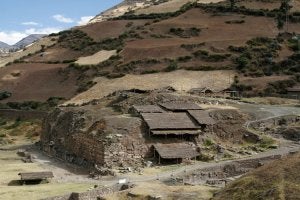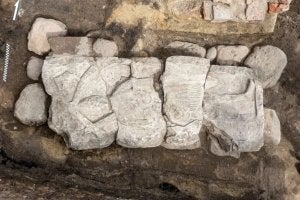"The phrase d'blg finds a parallel in the epithet of 'ilu, qn 'rs 'creator of the earth', which is attested in a number of Northwest Semitic inscriptions, spanning from the 8th century BCE to the 2nd century CE (Miller, 1980). The verb qny 'to create', which is the semantic equivalent of 'ilg, is also applied to 'ilu in the Ugaritic texts (Pope, 1955, 49-54). BES24 1.2, therefore, demonstrates that the ancient Arabs shared in Near Eastern 'ilu mythology.
This particular myth could perhaps be sourced to Nabataea given the etymological origins of the name allāh itself. As such, the conclusion that Allāh is simply ancient 'ilu under a different name appears unavoidable. But how did the name mutate in such a way? Robin's idea of it being a translation is imprecise. After all, 'ilu is a proper name and so it would not lend itself to translation as such, especially with the definite article. I would suggest instead that the epithet al-'ilāh 'the god' par excellence, was applied to the creator 'ilu in West Arabia and the Nabataean realm. In time, the epithet simply replaced the name, resulting in 'ilu being forgotten completely. The evolution of the divine name Allat offers an important parallel. Scholars have previously suggested that the name was the epithet of 'Attar/Ishtar, specifically her North Arabian manifestation trsm l'Attar-Samēl"













